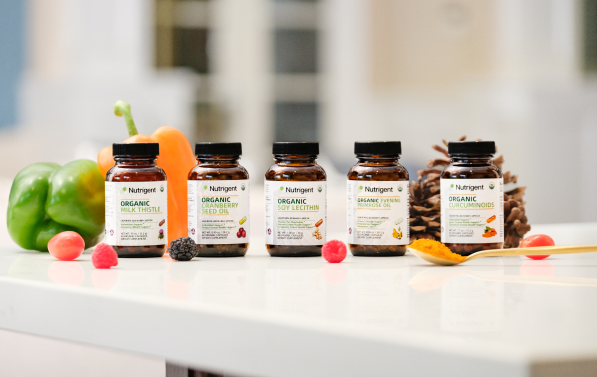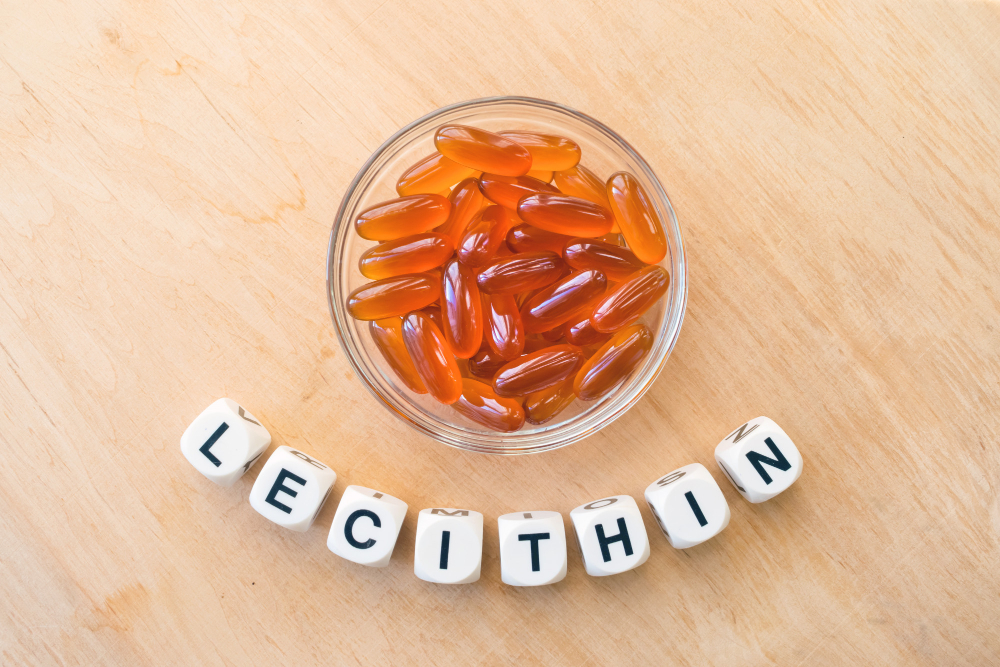Free Ship Over $75
15% OFF First Order
-
Shop
NEW & NEATURED
SHOP BY HEALTH BENEFITS
-
About Us
-
Shop
NEW & NEATURED
SHOP BY HEALTH BENEFITS

-
About Us
Free Ship Over $75
15% OFF First Order



Phospholipids are essential components of biological and cellular membranes in nature. They play a vital role in numerous physiological processes such as cellular transport and metabolism. Their importance is particularly evident in the brain and nervous system, circulatory system, and immune system. Lecithin is an essential nutrient for the human body and is often referred to as the “third nutrient” alongside proteins and vitamins. It is a naturally occurring fatty substance found in many foods, with high concentrations in egg yolks and soybeans. Soy lecithin is a mixture of phospholipids, including phosphatidylcholine (PC), phosphatidylethanolamine (PE), phosphatidylinositol (PI), and phosphatidylserine (PS), among others. It also contains various fatty acids and is widely known as the “vascular cleaner” due to its beneficial effects on cardiovascular health.

Phosphatidylcholine can help lower cholesterol levels in the blood and reduce the risk of atherosclerosis, thereby improving heart and vascular health. One study found that taking soy lecithin supplements for two months resulted in a 42% reduction in total cholesterol and a 56.15% reduction in LDL cholesterol.
② Liver Protection
Lecithin has been shown to aid in fat metabolism and reduce fat accumulation in the liver, helping to prevent liver damage. This is particularly beneficial for individuals with non-alcoholic fatty liver disease (NAFLD).
③Cognitive Function Improvement
Choline, a key component of lecithin, is a precursor of the neurotransmitter acetylcholine, which is crucial for maintaining brain health and cognitive performance. Studies have shown that phosphatidylserine and phosphatidic acid derived from soy lecithin may positively influence memory, cognition, and mood in older adults.
④ Immune System Support
Components in soy lecithin may enhance immune system function and improve the body’s ability to resist illness.

The typical recommended daily dosage for lecithin supplements ranges from 1,200mg to 2,400mg. However, the appropriate amount may vary based on individual health conditions and goals, and it’s best to consult a healthcare provider before starting supplementation.
Potential side effects of lecithin may include diarrhea, nausea, stomach discomfort, or a feeling of fullness. People with allergies to eggs or soy should avoid lecithin, as it may trigger allergic reactions. Lecithin is generally considered safe. According to reports from the U.S. Food and Drug Administration (FDA) and the Joint FAO/WHO Expert Committee, taking 22–38 grams of lecithin per day for 2–4 months showed no adverse effects.

There are two key characteristics of lecithin:
① It is heat-sensitive. Exposure to temperatures above 50°C can gradually destroy its biological activity. Therefore, it is best consumed with warm water.
② The higher the purity, the better the absorption.
Premium soy lecithin capsules should appear brown, clear, and transparent, with no sediment or visible impurities. They should have a mild nutty aroma and a smooth surface. A slight stickiness between capsules that resolves with gentle shaking is normal. However, if you notice leakage, capsules sticking together permanently, or string-like residue when separating capsules, this may indicate temperature-related soft capsule damage or poor product quality. Additionally, with increasing concerns over food safety, additives, organic solvents, and heavy metal residues increasingly threaten our well-being. Therefore it is essential to choose soy lecithin that is natural, additive-free, and free from organic solvents and heavy metal residues.
Customer Support: If you have any questions or need assistance, please contact our customer service team info@nutrigent.us. Our service hours are Monday to Friday, 9:00 AM to 5:00 PM.
DISCLAIMER: *These statements and any claims made about specific products on or through this site have not been evaluated by the Food and Drug Administration and are not intended to diagnose, treat, cure, or prevent any disease. This site is not intended to provide diagnosis, treatment, or medical advice, and all content provided is for informational purposes only.*